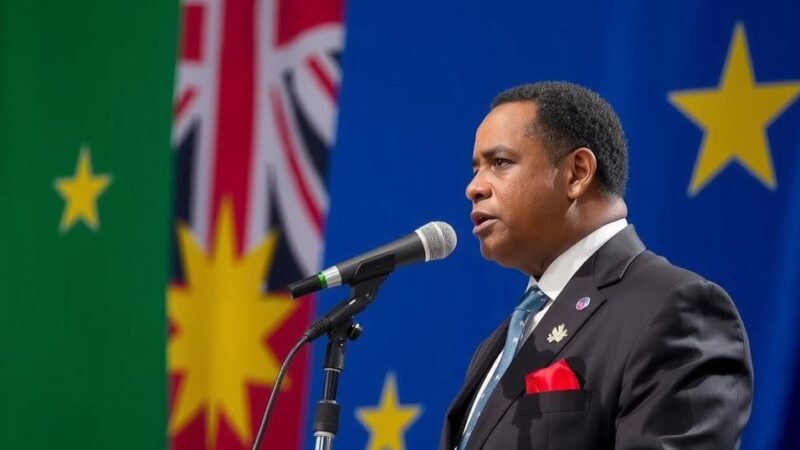Claudia Sheinbaum, Mexico’s incoming president, faces criticism for inviting Cuban and Venezuelan dictators to her inauguration, alarming U.S. investors. Her support for controversial judicial reforms threatens economic stability, and her diplomatic choices raise questions about her priorities and legitimacy. Amidst a backdrop of declining economic forecasts, Sheinbaum must navigate these challenges to improve investor relations and focus on sustainable growth.
Claudia Sheinbaum, the incoming president of Mexico, is making choices that signal troubling priorities as she prepares to assume office. By inviting the controversial leaders of Cuba and Venezuela to her inauguration, Sheinbaum risks alienating U.S. investors at a time when her country is already facing economic challenges. In addition to her controversial guest list, Sheinbaum’s support for a judicial reform initiated by her predecessor, Andrés Manuel López Obrador, poses further risks to Mexico’s economy. This reform, which centralizes judicial powers, has raised alarms among investors concerned about potential risks to their investments, with significant banks warning that the reform may deter $35 billion in planned investments. Moreover, Sheinbaum has chosen not to extend invitations to notable leaders such as Spain’s King Felipe VI, nor to the elected presidents of Ecuador and Peru, yet has opted to roll out the red carpet for authoritarian figures. This invites scrutiny about her diplomatic priorities and consistency, especially as tensions with Spain heighten due to historical grievances from the era of colonization. As Sheinbaum navigates her upcoming presidency, it is imperative for her to recalibrate her approach, prioritize relations with established global partners, and focus on fostering an environment conducive to investment and economic growth, rather than aligning herself with leaders associated with human rights abuses.
Claudia Sheinbaum is the newly elected president of Mexico, having previously served as the mayor of Mexico City. She is affiliated with the Morena party, which is led by Andrés Manuel López Obrador, the current president. Her administration is characterized by its left-leaning populist agenda, which has included calls for judicial reforms that aim to strengthen executive control. Recently, Mexico’s economic forecast has been downgraded, prompting concerns within the business community, especially concerning investment from the United States, which accounts for a large portion of Mexico’s trade.
In summary, Claudia Sheinbaum’s approach leading up to her presidency raises significant concerns regarding diplomatic relations and economic stability in Mexico. Her choice to invite the dictators of Cuba and Venezuela to her inauguration while snubbing democratically elected leaders questions her commitment to democratic principles and international partnerships. It is critical for her administration to focus on building investor confidence and nurturing economic growth, rather than exacerbating tensions with key allies.
Original Source: www.miamiherald.com






